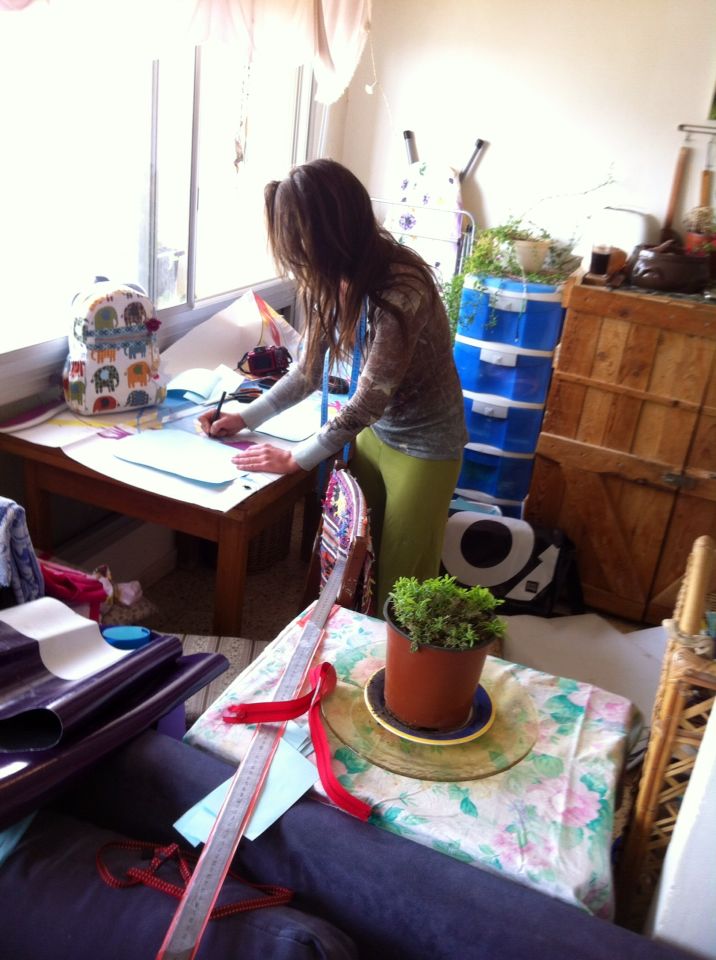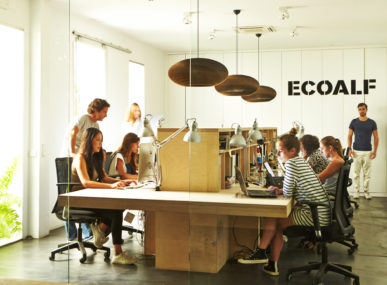Zimmermann’s eye for design is immediately visible in the bags. “The first thing I notice is the colors and patterns. I love anything with flowers or nature on it,” Zimmermann says, referencing the WhatsApp photos Castel will send her of a billboard ad nearing the end of its campaign lifespan. “I worked for so many years with different materials. In a way, this is an easier material to handle because it does not move like silk or something more delicate.”
Once Zimmermann has selected her part of the advertisement, she starts designing. Its durability is what makes PVC ideal for designs requiring a bit more strength. One of the latest Ekobag designs is a diaper bag for mothers, complete with all the bottle holders, rings, and zips required to make the bag highly functional. Zimmermann just finished the model for a diaper changing mat and envisions making travel kit bags in the future. Ekobag also makes various sized handbags and laptop cases.
Sewing supports a social cause:
Once Zimmermann has cut her canvas into a pattern of pieces, the bags are ready to be sewn. To save on sewing costs and contribute to a social project, Castel approached Native Rehabilitation Center in Hadera, Israel. The center works with psychiatric patients, many of whom have schizophrenia. “The amount we get paid by Ekobag is paid to our patients. It helps them because the money from social security is not very high,” says Daniel Szal, a clinical social worker, and manager of the center. According to Szal, 10 patients have been hired to work on the Ekobag project.
Having bags sewn at the center means Ekobag is able to save money and not have to rely on cheaper sewing services in other parts of the world. Those savings are then passed down to customers.
Bringing the Ekobag movement to Israel:
Ekobag’s operations are still evolving. Castel says the next step is to increase sales to both private customers and larger clients. He has run a few successful Facebook ad campaigns, which has garnered dozens of ‘likes’ and a few sales for the product. Customers from around the world can currently buy products via Ekobag’s online shop, and purchases have been sent as far as Austria and Canada. Still, Castel admits sales are in their early stage.











